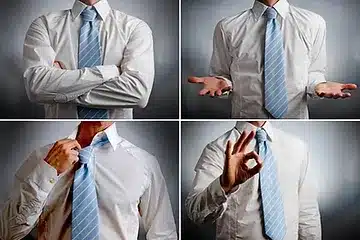Entering full-time work in an office – that is, starting my career, and not just a casual job – I have only now at this point in my life realised just how much I didn’t know about non-verbal communication.
Back in uni … and basically for all of my life before this point, relationship building and networking had never been at the forefront of my mind. Of course, this is not to say that I didn’t value building good relationships with people before now, but making sure your boss and colleagues think well of you requires much more conscious effort than hanging out with your pals.

For instance, are you supposed to smile at people who you walk past in the corridor? Basic rules of politeness suggests yes, but do people acknowledge everyone they pass? Or just the people they know? And what if you pass by them multiple times a day? Do people still make some sort of non-verbal exchange of pleasantries? Do people acknowledge others when they enter elevators? How much eye contact are you supposed to make in a conversation? Obviously not making any would make you seem rather sketchy, but constantly looking at them probably gives off murderous intentions.
Can we be really be confident that employers understand access and inclusion enough that we do not have to worry so much about the impressions we are making?
I’m slowly picking up the answers to these questions by trying to observe as much as I can, and by just asking people straight up. However, there is still probably quite a bit I’m missing from not being able to make two-way eye contact with people. I say ‘two-way’ as, although I might be looking into someone’s eyes, I can’t actually see their eyes, whilst they can see and read mine – so it’s more of a one-way eye contact. This makes it hard to pick up on subtle emotions, or when people’s body language don’t say the same thing as their mouths. Trying to catch a waiter’s or bartender’s attention also becomes a bit of a sport.
We are told to make sure we make good impressions on people and in the ‘professional’ world so much of what is unspoken can be the difference between being tapped for a promotion or not. How do we navigate these unspoken complexities as young people with disabilities? Can we be really be confident that employers understand access and inclusion enough that we do not have to worry so much about the impressions we are making? I would be interested to hear from other people with disabilities how they have navigated the professional world. In the meantime, I am trying to find ways around it, and am open to any thoughts or tips.